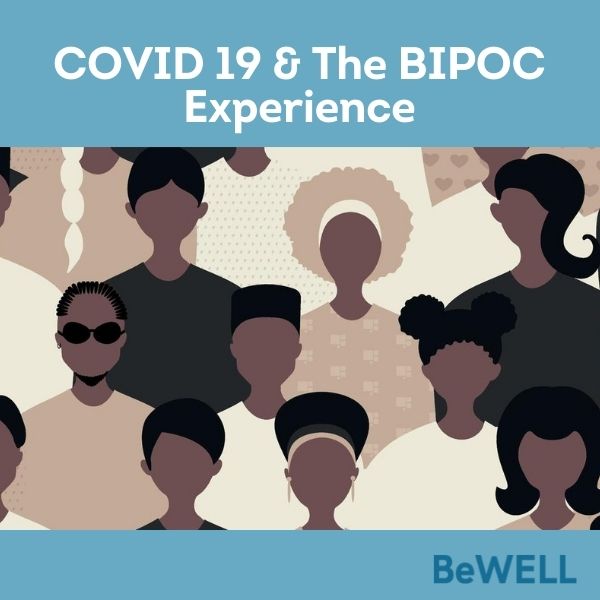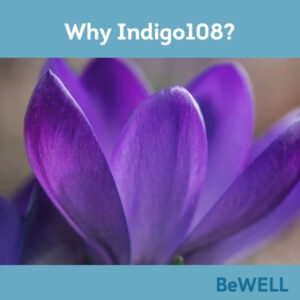For a lot of communities, Covid 19 has increased anxiety and depression symptoms, financial strain, a shift in home life, and an overall feeling of uncertainty. Nearly everyone had to shift the way they worked in 2020, many had to tackle working from home, and others were even laid off all together. Childcare and homeschooling presented new challenges for many families and for some individuals, the pandemic, lockdowns, and other restrictions created overall emotional and mental health challenges. For the BIPOC community, this was no exception, in fact according the to CDC, racial and ethnic minorities, along with young adults, essential workers, and unpaid adult caregivers, have reported disproportionately worse mental health outcomes, higher thoughts of suicide, and increased substance abuse.
Being BIPOC in a Pandemic
The CDC’s Covid 19 Data Tracker shows that Black and Idigenous people have the highest death rate in the United States. Pacific Islander and Latin X follow, so why does it seem like the pandemic wasn’t a priority to BIPOC?
According to Vanessa Filmonor, Nationally Certified Counselor and Licensed Associate Counselor at Be.Well, her BIPOC patients were not talking about the pandemic. “The pandemic isn’t the trauma for BIPOC. It is just another thing we have to deal with on top of our existing trauma.” She describes. She says her BIPOC patients, as young as 13, are having increased anxiety and depression symptoms, disrupted sleep and concentration, feelings of hopelessness, and even thoughts of sucicide, all things similar to PTSD symptoms. The key difference between the increased stress and anxiety that BIPOC are facing, is the pandemic isn’t necessarily the trauma that is causing these symptoms.
The Covid 19 Pandemic made it unsafe for people to be out in public, but what if you never felt safe to begin with? Suhailey Núñez, a Be.Well Psychotherapist points out that feeling unsafe in society is not new for BIPOC individuals, “It’s not a completely foreign idea to have to protect yourself, as a person of color. In some ways staying home and working from home feels safer, since we’ve never felt completely safe in society to begin with.”
Vanessa agrees, “I have some clients who were excited to work from home, so that they can avoid the racial microaggressions that they experience at work.”
Black Lives Matter
But staying safe extends far past mask mandates and talks of vaccinations in the BIPOC community. Racial tension is not new for many individuals in our country, but this year the manifestation of structural racism was broadcast at an all time high. Police brutality, which has been considered a public health crisis for decades, was highlighted by the media and the Black Lives Matter Movement. The killing of George Floyd was, for a lot of people, especially a lot of young people, a wake up call and a call to action to dismantle the structural and systemic racism in this country. Amidst the Covid crisis, which was hitting BIPOC communities at disproportionate rates, they were also seeing the system directly fail them.
Mistrust in the System
For many, the Covid 19 vaccine marked the beginning of returning to a sense of normal life. It has meant going back to work, getting back to social events, or seeing family. For many BIPOC, getting the vaccine has not been an automatic response.
“My Black and Brown clients are hesitant to get vaccinated. It is projected that it’s not safe to take the advice of healthcare providers and the healthcare system as a whole.” Says Suhaily. She describes that along with the other barriers BIPOC already face within the healthcare system, people are truly questioning if the vaccine is safe. With various cities offering incentives, people are beginning to question if it is in fact meant to hurt them.
“As a Black woman in the medical system, it (the system) is not for us.” Says Vanessa and she hits on a sentiment shared by many BIPOC. The healthcare system has been brutal, dishonest, and historically harmful for people of color. Some BIPOC are unwilling to trust a free vaccine from a healthcare system that doesn’t even offer free healthcare. And Vanessa reminds us that this fear and this experience is valid. “There is real medical trauma in BIPOC and trauma disrupts the nervous system. Your body is responding to what is not normal. Trauma and oppression, while it is common, is not normal.”
How Can BIPOC Cope with Anxiety, Racial Tension and Racial Trauma
Coping with racial trauma must be met with honesty and openness, says Vanessa. Racist structures and systems are built to keep people held down, by internalizing their oppression rather than externalizing it. Vanessa, and other be.Well Therapists help patients externalize their oppression by putting their experiences into words, so that their patients can channel who they are, independently from BIPOC trauma and oppression. “Especially when I’m working with younger patients, I remind them that this system of oppression was created before they were even born, that it’s not their fault, and urge them to explore who they are, who they want to be, and how they can continue to thrive and cultivate pride.”
Self care and self compassion are crucial in coping with anxiety and depression symptoms, feelings of hopelessness, or dealing with trauma. “I tell my patients to do the best that they can with what they have. Today’s best may not be tomorrow’s best.” Says Vanessa, who has found that her young school age patients often need to give themselves particular grace, as they try to make sense of the world around them. It is also crucial for adults to show up for BIPOC youth, by acknowledging the racial stress and tension that children are facing. Parents have to have open and honest conversations about race with their children, and teachers need to show empathy and compassion to their students of color.
One of the most important ways to care for yourself is to set boundaries. Vanessa reminds her clients of all ages that they must advocate for themselves, if that means unfollowing people on social media or distancing themselves from friends or coworkers that they do not feel supported by, that’s OK. “I tell my patients that creating a positive support network is crucial. Find your support system, find your tribe. You may have to go out and actively look for these networks, but that is the beauty of technology. Your support network could be people you connect with on social media, follow on Instagram, or listen to on a podcast.”
If you are BIPOC and are struggling with racial trauma, stress, or anxiety and depression symptoms, you are not alone and a Be.WELL. Therapist is here to help. Our diverse team of therapists in Hoboken and Manhattan are experienced and empathetic toward race, culture, and identity, and can help you ease your anxiety and take control of your mental well being. Our therapy office understands the importance of feeling safe and can offer you a therapist who allows you to show up as your authentic self. A Be.WELL. Therapist is available in both Midtown, NYC and Hoboken NJ.



